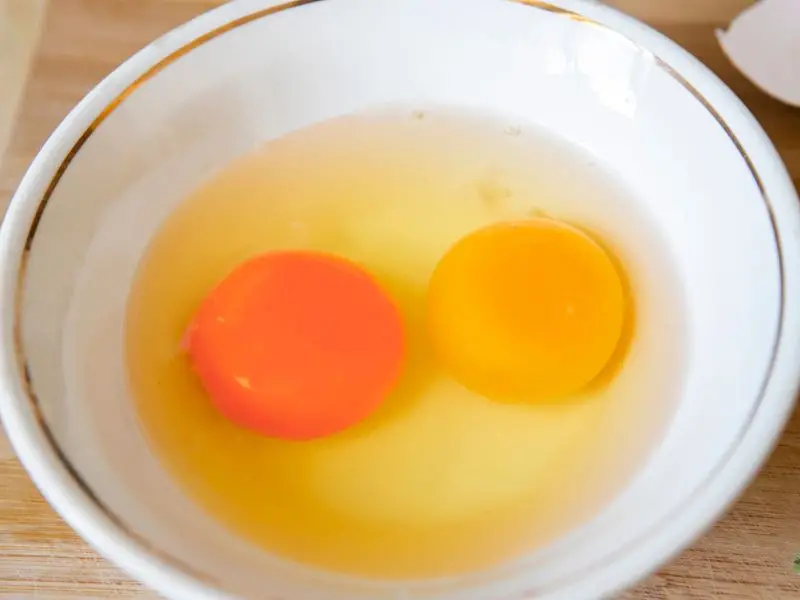Can You Tell Which Egg Came from a Healthy Chicken?
Have you ever cracked open an egg and noticed variations in yolk color? It might seem like a small detail, but the hue of an egg yolk can tell you a lot about the hen’s diet and overall health. This often-overlooked feature gives insight into the egg’s nutritional value and the farming practices behind it.
Why Yolk Color Matters
The color of the yolk is influenced by the hen’s diet. Hens that eat a varied, nutrient-rich diet produce darker yolks, which are packed with vitamins A, E, and omega-3 fatty acids. In contrast, pale yolks indicate a more restricted diet, often resulting in fewer nutrients.
Types of Eggs and Yolk Color
- Pastured Eggs:
These come from hens that roam freely and eat a diverse diet. Their darker, orange yolks are the most nutritious, containing higher levels of essential vitamins and omega-3s. - Free-Range Eggs:
Hens have access to the outdoors and consume some variety in their diet. The yolks are lighter than pastured eggs but still more nutritious than caged eggs. - Caged Eggs:
Hens are confined and fed a grain-only diet, producing pale yolks with lower nutrient content.
How to Identify the Healthiest Eggs
When shopping for eggs, look for terms like “pastured” or “free-range.” These eggs not only offer better nutrition but also come from farms that prioritize animal welfare. By choosing eggs with darker yolks, you support healthier, more ethical farming practices.
The next time you crack open an egg, check the yolk—it’s a good indicator of the quality and nutritional value you’re getting.
FAQs
1. What does the color of the egg yolk really indicate?
The yolk color reflects the hen’s diet. Darker yolks typically come from hens with a more diverse and nutrient-rich diet, while lighter yolks suggest a grain-only or limited diet. This means darker yolks generally have higher levels of vitamins and omega-3 fatty acids.
2. Are pale yolks unhealthy?
No, pale yolks are not unhealthy, but they are less nutritious compared to darker yolks. Pale yolks usually come from hens that are fed a diet primarily made up of grains, lacking the variety found in pastured or free-range eggs.
3. Why are pastured eggs more expensive?
Pastured eggs are more costly because hens raised in this environment have access to the outdoors, eat a diverse diet, and live in more humane conditions. These factors contribute to higher production costs but result in more nutritious eggs.
4. How can I tell if an egg is pastured or free-range?
Look for labels that specifically say “pastured” or “free-range.” Pastured eggs are the gold standard, with hens roaming freely outdoors, while free-range hens also have outdoor access but may not have as varied a diet.
5. Does yolk color affect taste?
Some people claim that eggs with darker yolks have a richer flavor, though taste differences can be subtle. The primary difference lies in nutritional content, not taste.
6. Can I improve the color of yolks in store-bought eggs by changing my storage methods?
No, yolk color is determined by the hen’s diet, not by how eggs are stored. Choosing eggs from farms where hens have access to a more diverse diet is the only way to get those darker yolks.
Tips
- Check Labels for Clarity
When buying eggs, look for specific terms like “pastured” or “free-range.” “Cage-free” does not guarantee a diverse diet for hens, so pastured or free-range are your best options for higher nutritional value. - Look for Local Farms
If possible, buy eggs from local farms where you can inquire directly about the hens’ diet and living conditions. Farmers’ markets often have high-quality eggs with darker yolks. - Pay Attention to Price
While pastured eggs can be more expensive, their health benefits—like higher levels of vitamins and omega-3s—make them a worthwhile investment for your overall nutrition. - Store Eggs Properly
To maintain the freshness of your eggs, store them in the refrigerator at a constant cool temperature. Proper storage won’t affect yolk color but ensures you get the maximum nutritional benefits. - Use a Visual Check
If you crack an egg open and see a vibrant orange or dark yellow yolk, it’s a good sign you’re dealing with a nutrient-rich egg. This is often a simple way to tell if your egg came from a healthier, more ethically-raised hen. - Consider the Source
Eggs from smaller, family-owned farms often offer better quality and more transparency about hen conditions than mass-produced eggs from larger industrial farms.

